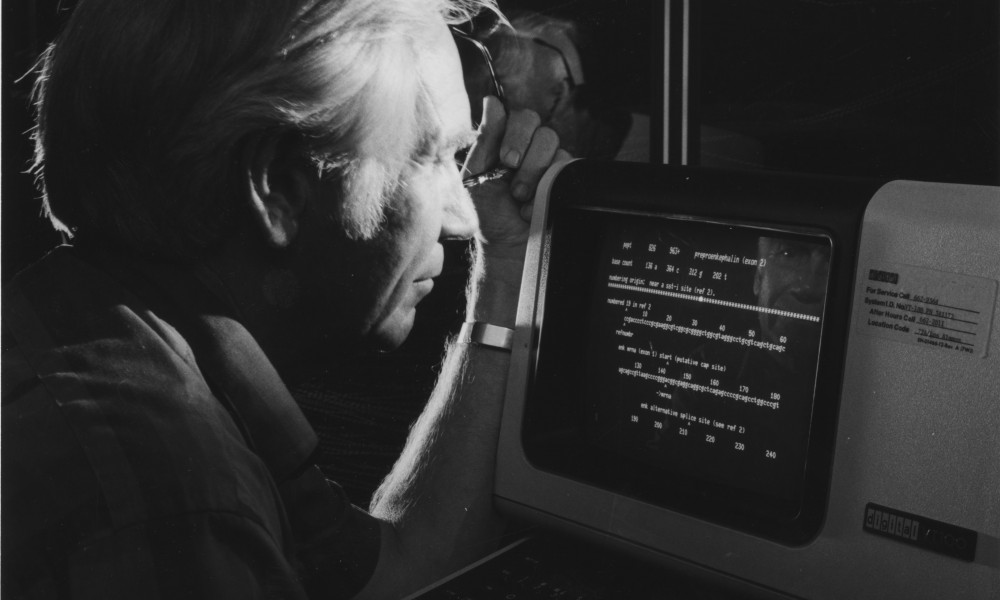Digital Humanities Fellowships

The Center for Digital Scholarship (CDS) at the American Philosophical Society invites applications for Digital Humanities Fellowships at the American Philosophical Society's Library & Museum. These fellowships, for up to 2 months, are open to scholars at all stages of their careers, including graduate students, who are developing digital projects that: 1) utilize the APS's Library & Museum collections, open datasets, or other APS holdings to advance a digital component of an independent research project, or, 2) seek to apply existing tools and expertise to digital projects developed in collaboration with the Library & Museum’s Center for Digital Scholarship.
- Successful applicants will receive a stipend of $3,000 for a minimum of one month and a maximum of two months.
- Recent examples of collaborative projects have focused on the Center’s Open Data Initiative and have explored datasets created from Benjamin Franklin’s postal records, indenture records for servants and redemptioners coming through the port of Philadelphia during the 1770s, and a network visualization of correspondence networks of women scientists found in the APS’s collections.
The APS's Library & Museum’s collections make it among the premier institutions for documenting and exhibiting the history of the American Revolution and founding, the history of science from Newton to NASA, and Indigenous languages and culture. The Society's collections include over 14 million manuscripts, 275,000 bound volumes, 250,000 images, thousands of hours of audio tape, and 3,360 three-dimensional artifacts and fine art objects. It is home to three research centers: the Center for Native American and Indigenous Research (CNAIR), which has worked with over 80 Native American and Indigenous communities since 2014; the Center for Digital Scholarship, which interprets and expands access to APS collections through digital projects and open source data; and the David Center for the American Revolution, a partnership with the David Library of the American Revolution that formed a new research center for the American Revolution at the APS and brought the David Library’s collection of Revolutionary-era manuscripts, hundreds of rare books and pamphlets, 8,000 reference volumes, and 9,000 reels of microfilm to Philadelphia.
Comprehensive, searchable guides and finding aids to our collections are available online at www.amphilsoc.org/library and http://amphilsoc.pastperfectonline.com/.
All application materials will be submitted online. Applicants must submit:
- Cover letter
- Curriculum vitae
- Proposal for a digital project including a detailed work plan and a proposed timeline for the fellowship term (no more than 4 double-spaced pages)
- Examples of previous digital humanities projects (if available)
- Two confidential letters of reference
The Center for Digital Scholarship promotes the holdings of the APS's Library & Museum through digitization, digital humanities, and the development of tools and software. We partner with scholars, institutions, and students from across the country to explore what digital scholarship means in a small, independent research library. We ask questions about our role within the field of digital scholarship, and we find answers through practice and experimentation. To learn more about the Center for Digital Scholarship, and to explore our recent projects, please visit us here.
Not offered in 2024-2025.
Current and Past Recipients
Charlotte Leib, Yale University, "Of Meadows and Meadowland Worlds: An Environmental History of the New Jersey Meadowlands"
Kevin Casey, Pitman High School, "Revolutionary City Lesson Plan Development"
Maeve Kane, University at Albany, “The Capacious Sacrament of Necessity: Ethnic and Racial Formation in Early American Baptismal Networks”
Jason Tercha, Binghamton University, “Mapping the Guano Trade into Antebellum United States”
Nicôle Meehan, University of St. Andrews, “Visualising Movement, Charting Memory: Indenture Records for Servants and Redemptioners”
Molly Nebiolo, Northeastern University, “Visualizing Urban Infrastructure, Health, and Medicine in 17th and 18th Century Philadelphia”
Loren Michael Mortimer, University of California-Davis, “(re)Mapping Kaniatarowanenneh: A Digital Atlas of Native American Political Ecology on the Upper St. Lawrence River, 1603-1850”
Serenity Sutherland, SUNY Oswego, “Visualizing 19th and 20th Century Women in Science”
Annette Joseph-Gabriel, The University of Arizona, “Mapping Marronage: Visualizing Transatlantic Networks of Freedom”
Steve Marti, University of Delaware, Eastern State Penitentiary records
A.J. Blandford, Rutgers University, “Labor and the Visualization of Knowledge in American Geological Surveys, 1780-1860”
Sarah Ketchley, University of Washington, “Visualizing ‘Golden Age’ Nile Travel: The Emma B. Andrews Diary Project”
